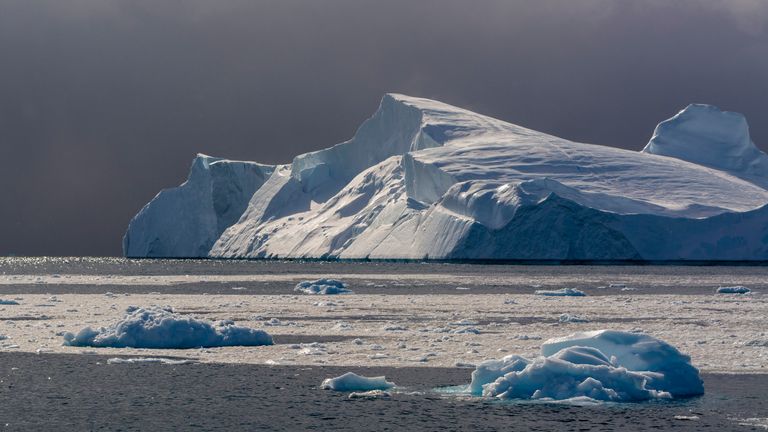The melting of polar ice due to human-driven climate change has slightly slowed the Earth’s rotation – and it could affect how we measure time, according to a study.
Although the disappearance of the ice has reduced the speed of the planet’s rotation, the Earth is still spinning a bit faster than it used to.
The overall increase in speed means that for the first time in history, world timekeepers may have to consider subtracting a second from our clocks.
This means clocks may have to skip a second – called a “negative leap second” – around 2029 to keep universal time in sync with the Earth’s rotation, according to the study published in the Nature journal.
If it wasn’t for the impact of melting ice, the time change would have been needed three years earlier in 2026.
In recent decades, the Earth has rotated faster due to changes in its core but the melting ice has counteracted this burst of speed.
World rotation is like a figure skater twirling
Duncan Agnew, the author of the study and a geophysicist at the Scripps Institution of Oceanography at the University of California, says the ice melting in Greenland and Antarctica has changed where the Earth’s mass is concentrated.
This has slowed down the Earth’s rotation as less solid ice at the northern and southern areas of the planet means there is more mass around the equator, the study suggests.
Mr Agnew has used the example of a figure skater twirling on ice to explain this.
He told Sky News’ US partner network NBC News: “If you have a skater who starts spinning, if she lowers her arms or stretches out her legs, she will slow down.”
However, if a skater’s arms are drawn inward this means she will twirl faster.
Read more:
New experiment to search for mysterious particles
Study reveals you need to exercise to avoid insomnia
US state bans under-14s from social media
The melting of ice in Greenland and Antarctica is an accelerating trend which is said to be driven primarily by human-caused climate change.
This means humans may be causing the Earth to spin less quickly than it otherwise would be.
Mr Agnew continued: “It’s kind of impressive, even to me, we’ve done something that measurably changes how fast the Earth rotates.
“Things are happening that are unprecedented.”
The melting of polar ice would be a new factor that affects the Earth’s spin.
The friction of ocean tides, due in part to the moon’s gravitational pull, slows the Earth’s rotation.
Meanwhile, the movement of fluid within the Earth’s liquid inner core can either speed or slow down how fast the planet rotates, Mr Agnew said.
